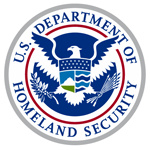 According to new border search policies disclosed by the Department of Homeland Security, federal agents may take your laptop or other media devices for an "unspecified" period of time even without any suspicion of wrongdoing, in an effort to "prevent terrorism."
According to new border search policies disclosed by the Department of Homeland Security, federal agents may take your laptop or other media devices for an "unspecified" period of time even without any suspicion of wrongdoing, in an effort to "prevent terrorism."
The policies are dated as of July 16th by the U.S. Customs and Border Protection and U.S. Immigration and Customs Enforcement but the DHS says the policies have been in effect for "some time now."
"The policies . . . are truly alarming," adds Sen. Russell Feingold, a Democrat from Wisconsin who has vowed to look into the new border search policies. Feingold also plans to introduce legislation that will force the government to have "reasonable suspicion" for searches. The legislation will also limit racial and religious profiling during searches.
The policies effect anyone entering the United States, including US citizens. Civil liberties and business travel groups have been pressing for months to have the government disclose publicly these policies, after receiving complaint after complaint from international and US travelers that have had their laptops, iPods and even cell phones taken, sometimes for months at a time.
To quote exactly from the policies, federal officers can "detain any device capable of storing information in digital or analog form for a reasonable period of time" to "review and analyze information." They may do this "absent individualized suspicion."
"Any device capable of storing information in digital or analog form" means anything from iPods, laptops, cell phones and hard drives to, I kid you not, books and "written materials commonly referred to as 'pocket trash' or 'pocket litter.'"
Although there are protections on "business information and attorney-client privileged material" there is no protection on personal data of citizens, including medical or financial records.
"They're saying they can rifle through all the information in a traveler's laptop without having a smidgen of evidence that the traveler is breaking the law," said Greg Nojeim, senior counsel at the Center for Democracy and Technology.
Homeland Security Secretary Michael Chertoff wrote last month in USA Today that "the most dangerous contraband is often contained in laptop computers or other electronic devices." He recalled times where searches have uncovered "violent jihadist materials" and hard drives full of child pornography.
Earlier this year the US Court of Appeals upheld the government's right to conduct searches without any suspicion of illegal wrongdoing.
If you wish the the full policies, they are available here: Customs search authority













